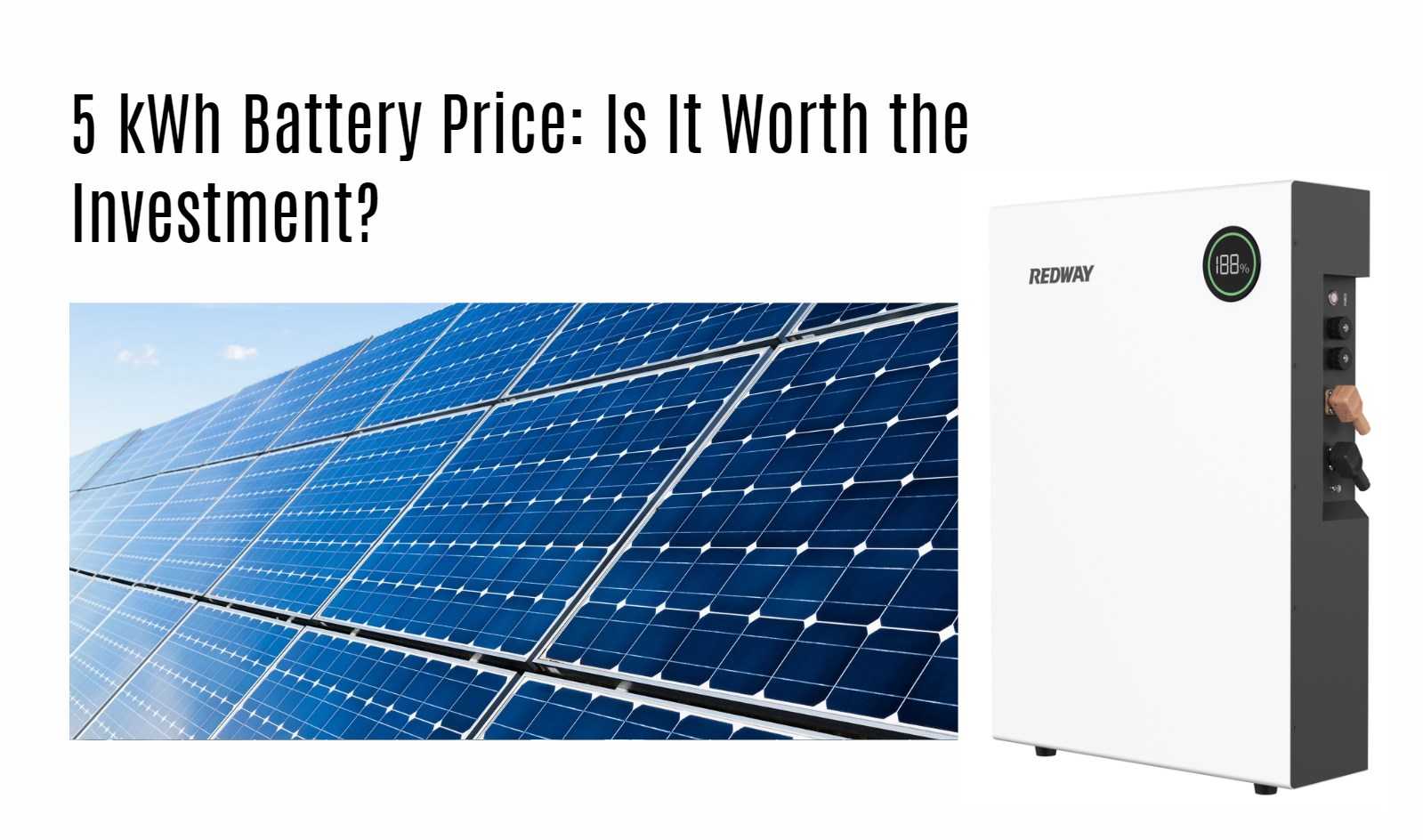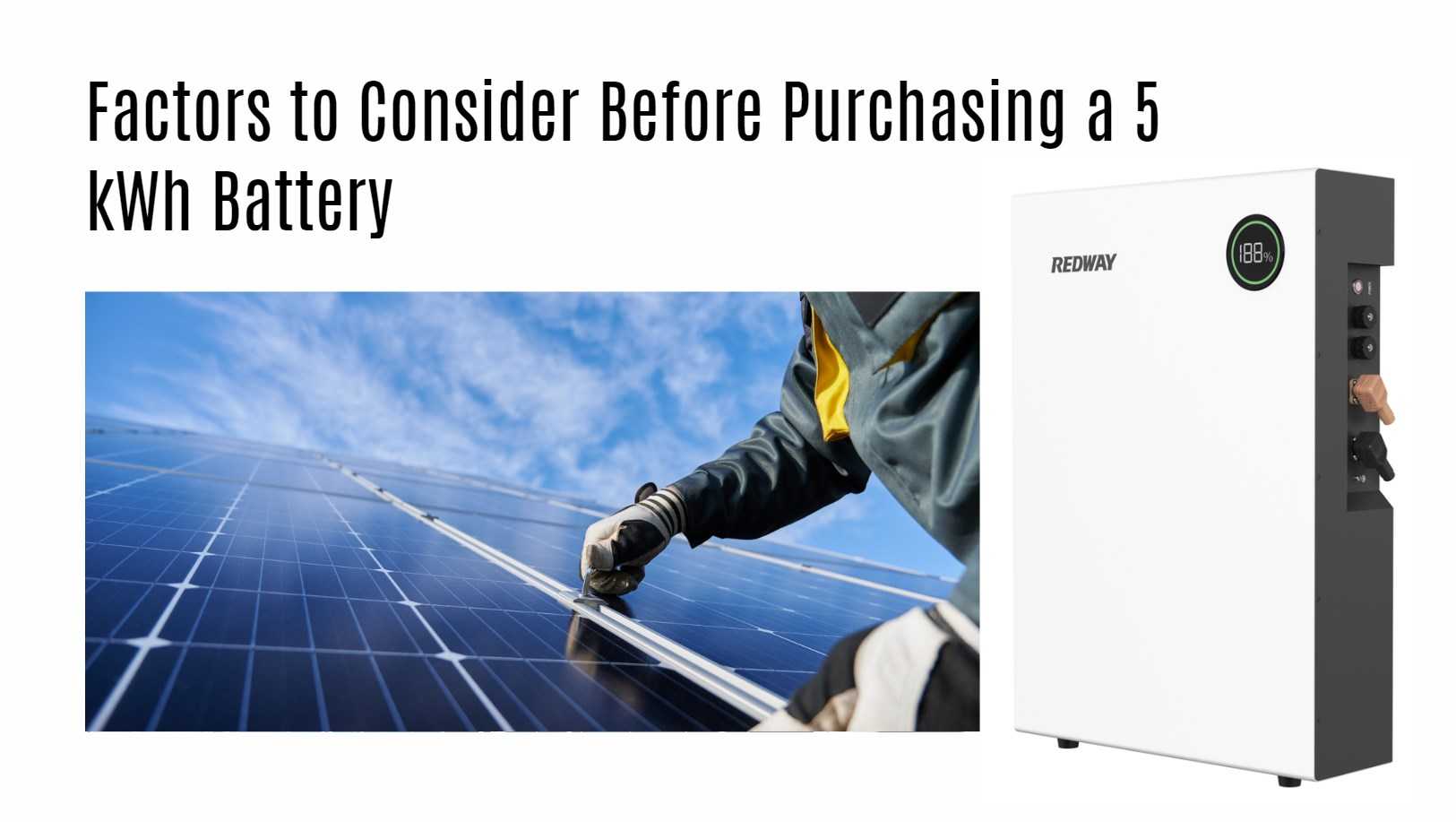-
Price Range: A 5 kWh battery can cost anywhere between $2,000 to $3,750, depending on factors such as brand, size, and location. It’s essential to research and compare prices from different suppliers to ensure you get the best deal.
-
Cost Savings: While the initial investment may seem significant, a 5 kWh battery can lead to significant long-term savings. By storing excess energy generated by your solar panels, you can reduce your reliance on the grid and lower your electricity bills.
-
Backup Power: One of the main benefits of investing in a 5 kWh battery is the ability to have backup power during outages. With a fully charged battery, you can continue to power essential appliances and devices, providing peace of mind and convenience.
-
Considerations: Before purchasing a 5 kWh battery, there are a few factors to consider. Firstly, evaluate your electricity usage and determine if a 5 kWh battery is sufficient for your needs. Additionally, take into account the installation costs, available incentives, and the overall quality and warranty of the battery.
Benefits of Investing in a 5 kWh Battery
-
Energy Independence: With a 5 kWh battery, you can store the excess electricity generated by your solar panels. This stored energy can be used later, allowing you to rely less on the grid and enjoy greater energy independence. You have the freedom to power your home with self-produced electricity, reducing your dependence on external energy sources.
-
Reduced Grid Reliance: By avoiding the need to send excess electricity back to the grid, you can maximize the financial benefits of your solar energy system. Sending electricity back to the grid often results in lower financial returns compared to using it directly from your battery. Investing in a 5 kWh battery enables you to make the most of the energy you generate and save on your electricity bills.
-
Cost Savings: A 5 kWh battery can help you save money in the long run. By using stored energy during peak-demand periods or when electricity rates are higher, you can reduce your reliance on grid-supplied electricity. This can lead to significant cost savings over time, especially as electricity prices continue to rise.
-
Environmental Impact: Investing in a 5 kWh battery contributes to a greener and more sustainable future. By utilizing stored energy from your battery, you can lower your carbon footprint and reduce the overall demand for electricity from non-renewable sources. It’s a step towards a cleaner and more environmentally friendly energy system.
Cost Comparison: Traditional vs. 5 kWh Batteries
-
Upfront Cost: Traditional batteries, such as lead-acid batteries, may have a lower upfront cost compared to 5 kWh lithium-ion batteries. This initial cost advantage can be appealing to some homeowners. However, it’s important to remember that upfront cost is just one aspect to consider when evaluating the overall cost of ownership.
-
Lifespan and Maintenance: Traditional batteries often have a shorter lifespan and require more frequent maintenance compared to 5 kWh lithium-ion batteries. Lead-acid batteries, for example, may need regular water refilling and periodic replacements, adding to the maintenance costs over time. On the other hand, 5 kWh lithium-ion batteries offer longer lifespans and require minimal maintenance, reducing the overall cost in the long run.
-
Energy Efficiency: 5 kWh lithium-ion batteries are known for their higher energy efficiency compared to traditional batteries. This means that a 5 kWh lithium-ion battery can store and deliver more usable energy compared to a traditional battery with the same capacity. The higher energy efficiency of 5 kWh batteries can result in cost savings over time, as you can maximize the use of stored energy.
-
Durability and Performance: 5 kWh lithium-ion batteries are designed to withstand frequent charge and discharge cycles, making them more durable and reliable in the long term. Traditional batteries may experience performance degradation over time, leading to reduced capacity and efficiency. Investing in a 5 kWh battery ensures consistent performance and reliable energy storage for your solar energy system.
Factors to Consider Before Purchasing a 5 kWh Battery
-
Capacity: The capacity of the battery is a crucial factor to consider. It determines how much energy the battery can store. Ensure that the 5 kWh capacity aligns with your energy requirements and usage patterns. If you have higher energy demands, you may need to consider a larger capacity battery.
-
Voltage Compatibility: It’s important to ensure that the voltage of the 5 kWh battery matches the requirements of your solar energy system. Compatibility between the battery and your system is essential for seamless integration and optimal performance.
-
Power Ratings: Consider the power ratings of the battery, which determine how fast it can deliver stored energy. Look for continuous power ratings and peak power ratings to understand the battery’s performance capabilities. This information will help you determine if the battery can meet your energy demands during peak usage periods.
-
Type of Battery: There are different types of batteries available, such as lithium-ion, lead-acid, and more. Each type has its own advantages and considerations. Research and understand the characteristics of each type to choose the one that best suits your specific needs.
-
Brand Reputation: Consider the reputation and reliability of the battery brand. Look for well-established brands with a track record of producing high-quality and durable batteries. Reading customer reviews and seeking recommendations can provide valuable insights into the brand’s performance and customer satisfaction.
-
Service Life and Warranty Period: Evaluate the expected service life of the 5 kWh battery. A longer service life ensures that the battery will last for a significant period without requiring frequent replacements. Additionally, check the warranty period offered by the manufacturer, as it provides protection against any potential defects or malfunctions.
-
Certification: Look for certifications and approvals from reputable organizations or industry standards. Certifications ensure that the battery meets specific safety and performance criteria, giving you peace of mind regarding its quality and reliability.
Case Studies: Real-Life Examples of 5 kWh Battery Usage
Curious about how 5 kWh batteries are actually being used in real life? Let’s dive into some fascinating case studies that showcase the versatility and practicality of these energy storage solutions.
In a residential setting, imagine a family relying on solar panels to power their home. With a 5 kWh battery system in place, they can store excess energy generated during the day for use at night or during peak hours when electricity costs are higher. This not only reduces their reliance on the grid but also saves them money in the long run.
Now picture a small business owner who runs a boutique shop. By installing a 5 kWh battery backup system, they ensure uninterrupted power supply during outages, safeguarding their inventory and keeping critical systems running smoothly without any interruptions.
Wholesale lithium golf cart batteries with 10-year life? Check here.
In the agricultural sector, farmers are utilizing 5 kWh batteries to power irrigation systems in remote areas where access to traditional grid infrastructure is limited. This ensures efficient water management for crops without depending solely on erratic grid supply.
These examples demonstrate how 5 kWh batteries have become instrumental in various industries and everyday scenarios, offering reliable and sustainable energy solutions tailored to specific needs.
Want OEM lithium forklift batteries at wholesale prices? Check here.
The Future of 5 kWh Batteries
As technology advances at a rapid pace, the future of 5 kWh batteries looks promising. With a growing emphasis on renewable energy sources and sustainability, these batteries are expected to play a crucial role in storing excess energy generated from solar panels or wind turbines.
Innovations in battery technology are driving down costs and increasing efficiency, making 5 kWh batteries more accessible to homeowners and businesses alike. As demand for clean energy solutions continues to rise, the market for these batteries is projected to expand significantly in the coming years.
Integration with smart home systems and grid infrastructure will further enhance the versatility of 5 kWh batteries, allowing users to optimize their energy usage and reduce reliance on fossil fuels. Additionally, ongoing research into materials science and manufacturing processes is likely to result in even more compact and powerful battery designs.
The future of 5 kWh batteries holds great potential for revolutionizing how we store and utilize energy efficiently.
Conclusion: Is It Worth the Investment?
Considering the benefits, cost savings, and environmental impact of investing in a 5 kWh battery system, it is clear that this technology offers a promising solution for both residential and commercial energy needs. While the initial investment may seem significant, the long-term advantages far outweigh the costs. As renewable energy sources continue to gain momentum and advancements in battery technology improve efficiency and affordability, opting for a 5 kWh battery could prove to be a wise decision for those looking to reduce their carbon footprint and lower their electricity bills. Choosing to invest in a 5 kWh battery can not only lead to financial savings but also contribute towards building a more sustainable future for generations to come.







